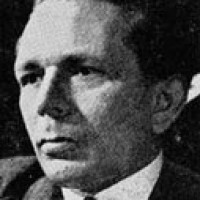Jutzi (July 22, 1896) was a German director, screenwriter and director of photography. For some time, he was landscape painter and film posters illustrator, and began his film career in 1919 as a cinematographer. He made his directing debut with the film
Das blinkende Fenster (1919), and continued with
Die Rache der Banditen (1919),
Das Deutsche Lied (1920) and
Der Graue Hund (1922). He moved to Berlin in 1925 and made
Kladd und Datsch (1926),
Kindertragödie (1928), and
Mother Krausen Goes to Heaven (Mutter Krausens Fahrt ins Glück, 1929).He continued to work as a cinematographer and director of documentaries for the company Pometheus Films, collaborating on many Russian films as well as the first German-Russian co production by the Russian director Grigori Roschal. Afterwards he made
Hunger in Waldenburg (1928) and
Berlin - Alexanderplatz (1931). During 1933, as the Nazis became stronger, his films were censored and prohibited and he began to work on short films, comedies and crime movies. In Austrian production, he made the feature films
Lockspitzel Asew (1935) and
Der Kosak und die Nachttigall (1935).

